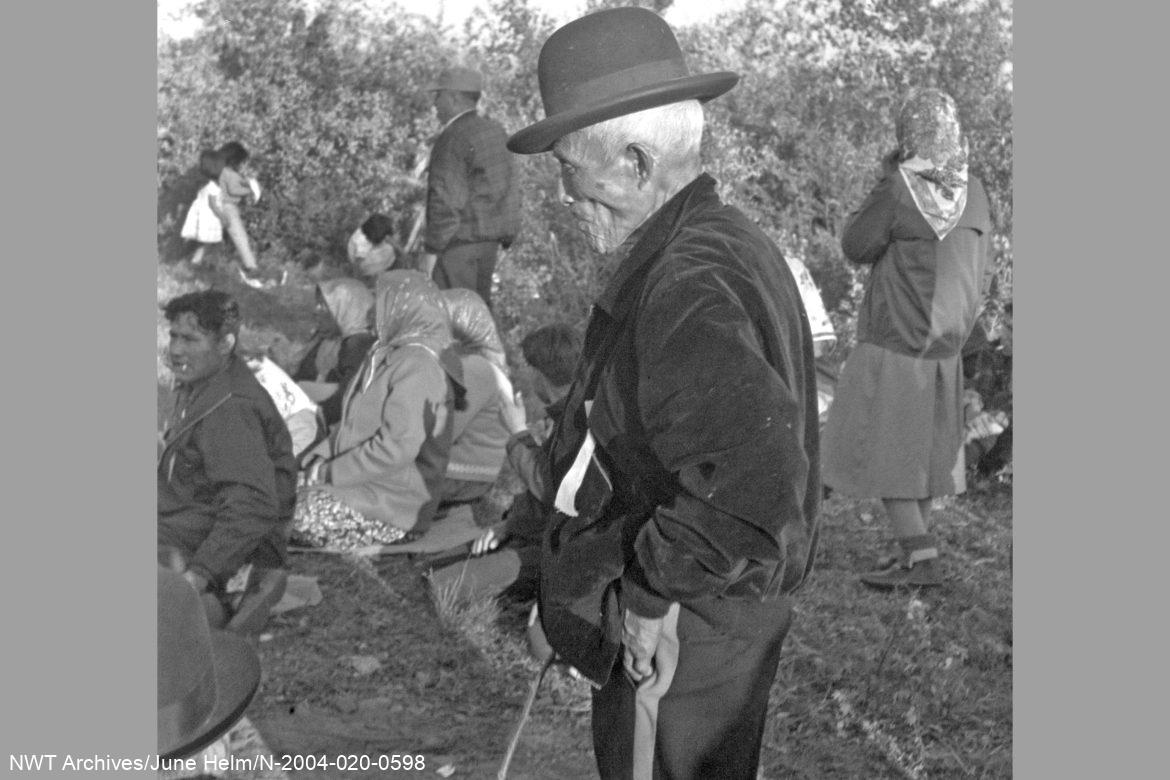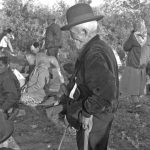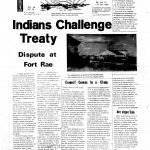1968
Protest at Treaty Time
1967 was the 100th anniversary of the creation of the Dominion of Canada. It was also the first time the written texts of Treaties 8 and 11 were translated into the Dene languages. The contents were a surprise to the Dene people. The minimal amount of land promised for reserves, the insistence of the Canadian government that the treaties had extinguished Indigenous land rights, and the refusal of the Tłı̨chǫ people to accept the Treaty 11 as presented helped inspire the 1968 Treaty 11 protest.
At 40, Chief Jimmy Bruneau was present when his uncle Mǫwhì signed Treaty 11 in 1921. Initially refusing to sign, Mǫwhì eventually believed the colonial government had met the terms presented to protect the Tłı̨chǫ. When Mǫwhì died in 1936, Jimmy Bruneau was chosen to be Chief because the people felt his skills and knowledge would help maintain the treaty rights promised that day in 1921. Instead, Chief Bruneau watched the evaporation of rights and lifestyle forced by the Canadian government onto the Tłı̨chǫ land. He led the protest against the treaty in 1968 and refused to participate in the usual treaty activities. Bruneau knew that the people had signed a peace treaty that did not extinguish the Tłı̨chǫ rights to the land. He was unhappy with the slowly encroaching government systems working to determine their communities’ place and the people’s rights.
The strong message sent out to the Dene population may have inspired the next generation to start advocating for their rights and protesting the Canadian government. The resistance by the Tłı̨chǫ people living in Behchokǫ̀, led by their 86-year-old Chief, continued a tradition of resistance within the Dene communities when the people refused to be treated disrespectfully in the colonial relationship with Canada. The Dene and Inuvialuit people created the Indian Brotherhood of the Northwest Territories and the Committee of Original Peoples Entitlement (COPE) respectively to continue to demand redress of growing concerns from the government of Canada.
The leadership of Chief Jimmy Bruneau extended beyond treaty concerns. He insisted on building a school within the Behchokǫ̀ area that would support the teaching of languages and Dene ways. He said at the opening of the school on January 9, 1972:
“I have listened to my Elders, Elders such as Mǫwhì. I have listened to the way they talked. I have listened to their ways, and now I am speaking according to their ways…I have asked for this school to be built on my land, that school will be run by my people, and my people will work at that school, and our children will learn both ways—our ways and the white men’s ways.”
Chief Jimmy Bruneau died in 1975 and is remembered for his skill, knowledge and wisdom.
Related Story: 1969 The Rise of Indigenous Political Organizations


